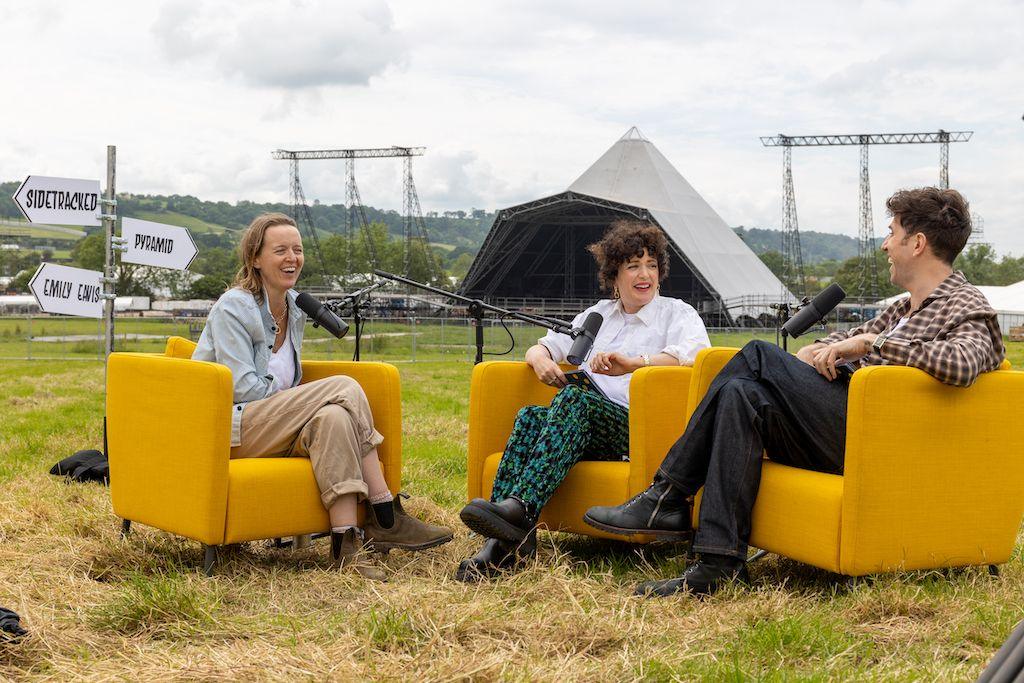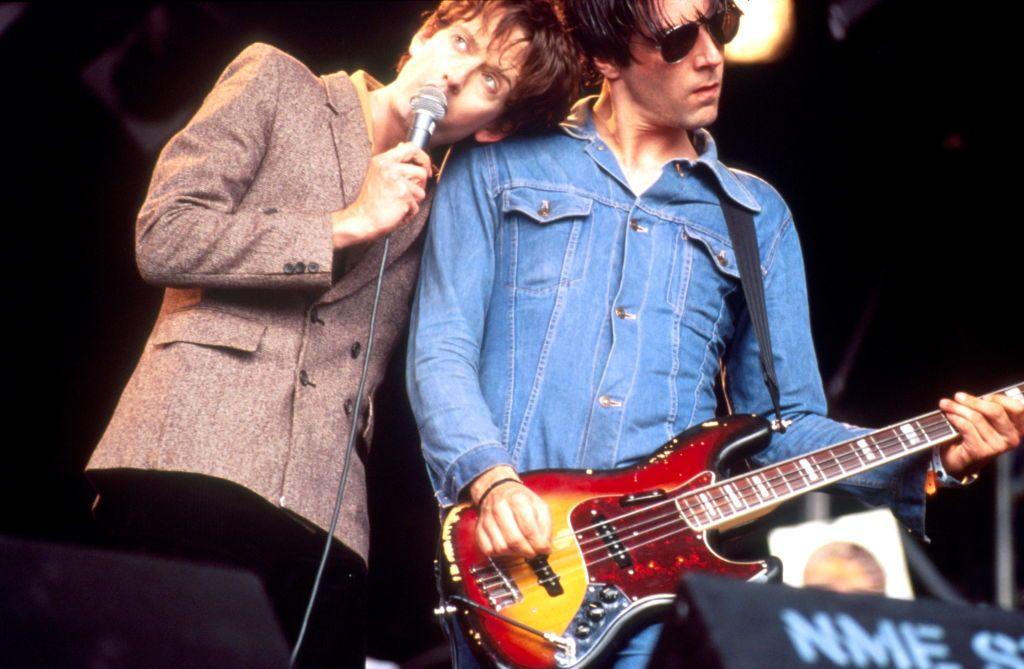Glastonbury festival 'was due to close' in the 90s

Emily Eavis was speaking to Annie MacManus and Nick Grimshaw on the BBC's Sidetracked podcast
- Published
Glastonbury founder Sir Michael Eavis wanted to pull the plug on the festival in the 1990s, his daughter Emily has told the BBC.
Sir Michael founded the festival on his Somerset farm in 1970, and saw it grow into one of the world’s most prestigious music events.
By the 1990s, it was attracting world-class headliners like Oasis, Bob Dylan and Radiohead - but the plan was to call it a day when he reached retirement age.
“My parents were always like, ‘This is the last one',” Emily Eavis told the BBC’s Sidetracked podcast.
“Everyone thought it was some sort of stunt to sell tickets but it wasn’t. They were genuinely like, ‘Well, we probably won’t do another.'”
In those days, the decision to extend the festival was taken on a year-by-year basis, she said.
It was only when Sir Michael’s wife, Jean, died in 1999 that the event became a permanent fixture.
“My dad was like, ‘Oh, I think I might need the festival now’,” Eavis told Annie Mac and Nick Grimshaw. “Because they were going to retire and go on long cruises and things like that.
“My dad was like, ‘Listen, let's keep it going.’
“I was like, ‘Yeah, I’ll help you’. Never did I think I’d still be here a few decades on.”
Glastonbury reveals more of line-up and stage times
- Published4 June 2024
Dua Lipa wants to turn this year's Glastonbury into a nightclub
- Published2 May 2024
Glastonbury Festival to remember Annie Nightingale
- Published31 May 2024
Sir Michael, who is now 88, is still involved with the festival, but the bulk of the organisation – including booking the main stages – is handled by Eavis and her husband Nick Dewey.
They open the gates for this year’s event on Wednesday, 26 June. Headliners include Dua Lipa, SZA and Coldplay - who top the bill for a record-breaking fifth time.
Eavis told the BBC that there would also be a call for peace, led by performance artist Marina Abramović, on the festival’s main stage.
“It's just a few minutes of silence, with her on the stage, and that's going to be a beautiful moment.”
Fallow year incoming
After criticism of last year’s predominantly white, male headliners, this year’s Pyramid Stage line-up has a 50:50 split between male and female acts, with two women topping the bill for the first time in the festival’s history.
Eavis is particularly excited about giving Dua Lipa her first headline slot in the UK.
“We’re creating this moment for her, and that’s really as exciting as anything,” she told Sidetracked.
Asked about her favourite ever Glastonbury, Eavis picked 1995 - when Oasis and Pulp headlined - “because I just finished my GCSEs [and] it was the first year that I was allowed to camp”.

Pulp stepped into the headline slot at the last minute in 1995, after The Stone Roses dropped out
She also recalled her dad joining her at the side of the stage to watch Stormzy’s historic performance in 2019, and abandoning the backstage area during Sir Elton John’s set last year.
“I was so pleased to see him here and I just had to walk into the crowd,” she explained. “It’s much better to watch from the field.”
Eavis said her dream headliner would be Kate Bush, even though she hasn’t performed live since 2014.
“I hope it will happen one day. I mean, Elton was a pipe dream and it happened, so you never know.”
With this year’s festival almost upon us, Eavis is already thinking about 2025. No headliners have been confirmed, she said, but she has “a vague idea” of who they might be.
Meanwhile, she said the festival would probably take one of its periodic fallow years in 2026.
“The fallow year is important because it gives the land a rest, and it gives the cows a chance to stay out for longer and reclaim their land,” she said.
“And I think it’s quite good not to be seen to be cashing in.”
The podcast Sidetracked by Glastonbury is available on Mondays from 3 June on BBC Sounds and visually on iPlayer, with special guests including Shania Twain, Emily Eavis and Mike Skinner. The series of bonus episodes are part of the BBC’s coverage of the festival on TV, BBC iPlayer, Radio and BBC Sounds.